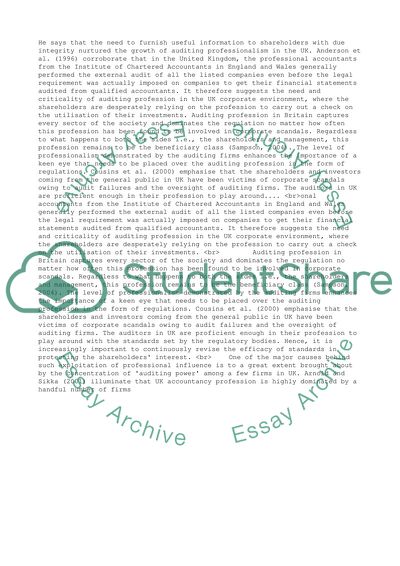Cite this document
(“Regulation Of Auditing Profession In UK Essay Example | Topics and Well Written Essays - 2500 words”, n.d.)
Regulation Of Auditing Profession In UK Essay Example | Topics and Well Written Essays - 2500 words. Retrieved from https://studentshare.org/business/1510379-auditing-profession-in-uk
Regulation Of Auditing Profession In UK Essay Example | Topics and Well Written Essays - 2500 words. Retrieved from https://studentshare.org/business/1510379-auditing-profession-in-uk
(Regulation Of Auditing Profession In UK Essay Example | Topics and Well Written Essays - 2500 Words)
Regulation Of Auditing Profession In UK Essay Example | Topics and Well Written Essays - 2500 Words. https://studentshare.org/business/1510379-auditing-profession-in-uk.
Regulation Of Auditing Profession In UK Essay Example | Topics and Well Written Essays - 2500 Words. https://studentshare.org/business/1510379-auditing-profession-in-uk.
“Regulation Of Auditing Profession In UK Essay Example | Topics and Well Written Essays - 2500 Words”, n.d. https://studentshare.org/business/1510379-auditing-profession-in-uk.


